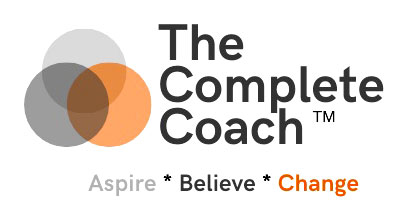
Hachette UK, Harlequin Mills & Boon and the BBC are goliaths in their respective media sectors and, having held senior leadership positions at each of these companies, when I reflect on my 30-year career to date I am overwhelmed by a sense of having done good work. I have done my best – but I’m also conscious that ‘best’ can always become ‘better’, not only in terms of commercial results and performance but also personal fulfilment, career satisfaction and work-life balance. For me, the magic ingredient in this complex and frequently challenging matrix is, without question, coaching, and I would like to share a little of my journey towards that powerful, indeed life-changing realisation.
Instinctively, I have always favoured a coaching style of management, placing a strong emphasis on empathic, compassionate and conscious leadership. Every leadership role I have ever held has been rooted in my desire to support my teams to achieve what is best for the company, but also them. My focus has always been on understanding and connecting with the people I work alongside.
Companies are built on the commitment and effort of their employees, but I passionately believe that commercial success shouldn’t come at the expense of valuing people as individuals: respecting their personal ambitions, trusting and empowering their sense of ownership, and – most importantly – taking care of their mental and emotional wellbeing. Nurturing employees and fostering a positive, supportive company culture has been proven to have a direct impact on the bottom line for all businesses. Beyond the commercial benefits, I believe in authentic leadership: respecting employees for who they are as people, not merely their job functions.
Like many people, I have faced many challenges in my career, some driven by experiences in the workplace, some by more personal life events – and the two are not mutually exclusive. Indeed, they often overlap. The notion that when we walk through the office door (be that a physical one or a digital, remote-working ‘portal’), we leave our personal life entirely behind and a magic protective cape suddenly envelops us is, to me, nonsense.
Never has it been more apparent than during the extraordinary challenges of the 2020 coronavirus pandemic, when so many of us have felt that we are ‘living at work’. There has been no physical and very little mental division between our jobs and home, with boundaries between the two completely blurred such that it has been impossible to leave our emotions, our struggles, our lives at the ‘office door’. I would suggest, however, that this compartmentalisation of the different parts of ourselves has never indeed been possible; I would even go so far as to suggest that it shouldn’t be.
Many of us, at some point in our careers, have been advised that there is ‘no place for emotion at work’. This is particularly true for men in business, yet my own experience of leading a corporate wellbeing network has taught me the value of being emotionally ‘real’. Feeling psychologically safe and confident to bring our whole selves to work not only avoids the huge stress of having to put on a ‘game face’, but it also enables us to draw on the richness of who we are as individuals: our learned and lived experience, our inner resilience and emotional intelligence. Leaders who model this behaviour are more effective and, indeed, commercially successful; employees who are able and permitted to be more completely themselves are also more effective, higher-performing – and happier.
Coaching can help foster this approach, and it was my own values-led coaching that created a real shift for me at a time when my career felt stale, stuck and where I was losing confidence and drive. Coaching gave me the time, space and support to raise my self-awareness, determine clear goals and shift my focus and performance; it helped me become a better manager, and, ultimately, it led me to change my career. I was so inspired by its effectiveness that I have now decided to switch my professional focus to coaching others – helping people and organisations that are already doing their ‘best’, but, with the right support, can do even better, feel better and live happier.
It takes time and commitment to bring about genuine change, and I believe coaching can help all of us achieve more, and quicker than we might alone. What is ‘more’? What is ‘better’? What is ‘balance’? What is ‘success’? These are big, important questions and the answers are unique to each of us, as is the journey towards achieving those goals – or, at the very least, establishing a positive mind-set to keep striving for them. As a good friend and fellow coach recently said to me: ‘It’s about progress, not perfection.’ – this has resonated for me. Everyone has different strengths and challenges, and in my coaching practice, I work with a highly person-centred approach. I listen, I challenge, and I hold my clients to account, supporting them to go deeper to truly raise their self-awareness and unlock their potential, as well as focus on their balance and mental wellbeing and what that means to them in their lives.

Recent Comments